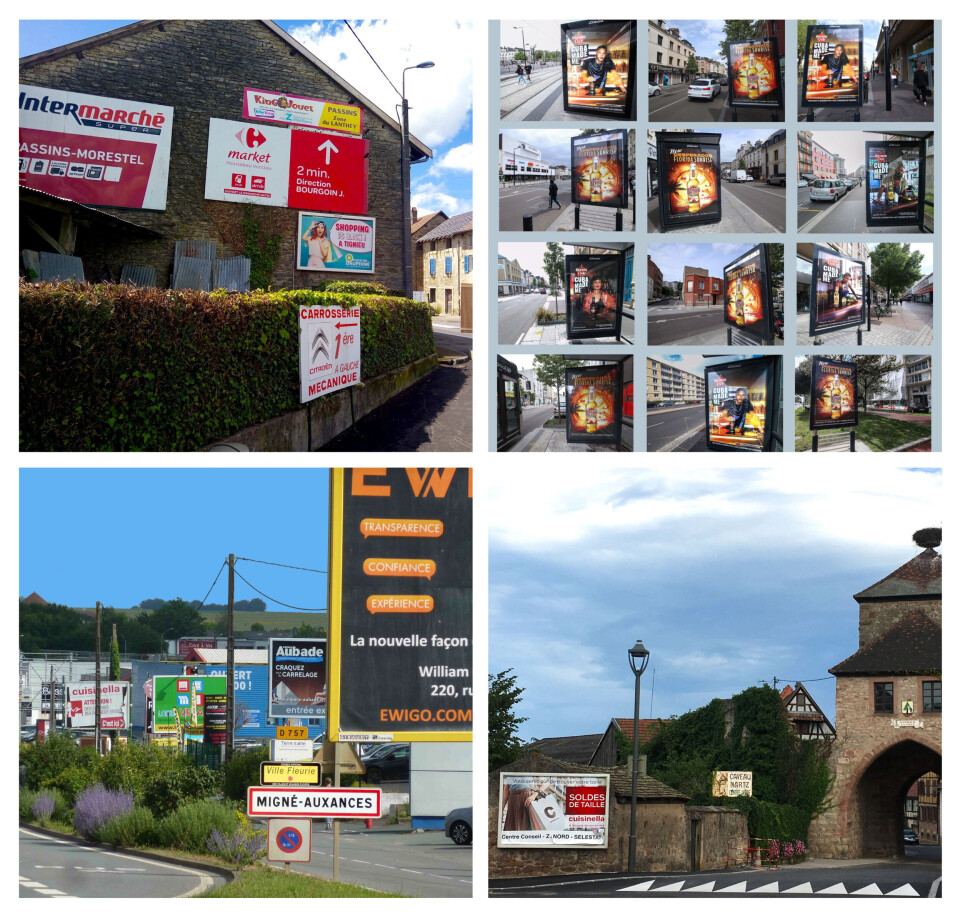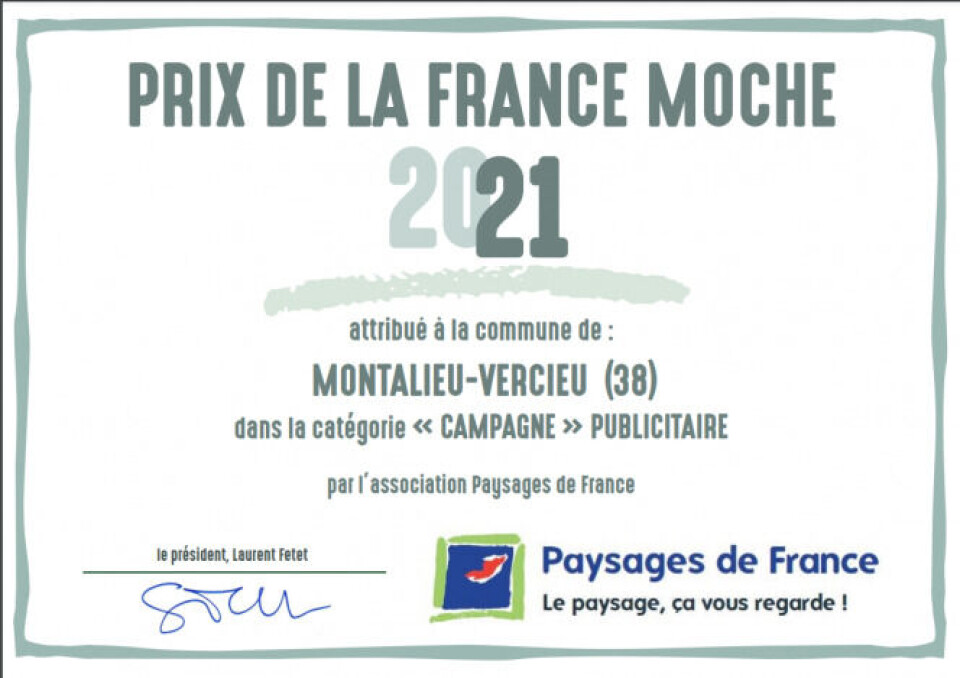-
Police across France hunt abandoned cars to free up spaces in urban areas
Vehicles cannot be parked on a public road in the same place for more than seven days
-
Senators examine proposal to guarantee access to cash machines in rural areas of France
Some 18.6% of French communes had access to at least one local ATM in 2024
-
French weekly weather forecast February 9-13: Unsettled with winds of up to 100km/h
Flood risk may increase in several regions and mountain conditions set to worsen
Billboards: Are these the four 'ugliest' towns or villages in France?
Environmental association awards ‘prizes’ for second year running, to raise awareness of an “invasion” of advertising signs sprawled across France’s towns and villages

What do the 15th most populated French city and three villages of less than 6,000 inhabitants have in common? They have all been awarded an Ugly France Prize.
The association Paysages de France awarded its Prix de la France moche to Migné-Auxances, a 6,000-inhabitant village south of Lyon, Montalieu-Vercieu (3,400), east of Lyon, Dambach-la-Ville (2,100) near Strasbourg and Le Havre, where former prime minister Edouard Philippe is now mayor.
They announced the winners in a press release and on Twitter.
The awards focused on four categories concentrated around billboards and advertising hoarding with a heavy dose of irony, play-on-words and cultural references.
One award category, for example, is called 'Tombé dans le panneau’, an expression meaning to have fallen into a trap, but with a pun on panneau (which also means a sign or billboard).
Another category is called ‘Campagne’ publicitaire', an expression which usually means an advertising campaign, but which can also be taken here to mean a ‘countryside’ full of advertising.
The winners were selected on the amount of ads they have installed throughout their communes as captured on photos sent by members.
Migné-Auxances was awarded the Tombé dans le panneau prize for its abundance of billboards by the town’s entrance, Dambach-la-Ville was selected because of a large billboard nearing a medieval gateway to the village, while Montalieu-Vercieu ‘won’ the ‘Campagne’ publicitaire' category for a photo of billboards covering walls and a hedge.

“In Montalieu, put your ads wherever you want,” said, ironically, Paysages de France in its press release.
The association awarded Le Havre its Publicité sans modération category (advertising without moderation) prize for a profusion of alcohol-related ads.
“Advertising has become very aggressive and intrusive in our daily lives,” said actor Olivier Saladin, 69, Paysages de France’s spokesperson. “It’s public space harassment,” he added.
Mr Saladin said he wishes to raise awareness on the invasiveness of advertising and calls for the abolition of ground-encased advertising and reduction in billboard sizes.
He said the association received around 60 pictures from 30 different towns and cities.
This is the second time Paysages de France has awarded its Prix de la France moche, no doubt inspired by articles in Télérama, a French cultural magazine which originally published in-depth coverage of places it deemed moche in 2010.
However the association itself has existed since 1992, and billboards have long been a major focus of its campaigns.
“From the viewpoint of the photo, I have to admit it’s ugly,” reacted Migné-Auxances’ mayor Florence Jardin to La Nouvelle République on November 3, 2021. However she said current French regulations make it impossible to avoid what she called a “forest of billboards at the entrance to our town.”
Mr Saladin said none of the selected commune’s mayors had reached out to the association yet but some had in 2020.
“They often argue they can’t do anything about it. It’s completely false,” he said.
According to the association’s press release: “The mayors of these communes have the means to combat this invasion of advertising which so strongly impacts on everyday scenery, by putting in place, or modifying, a local regulation on advertising, or by asking the prefect to intervene where there are adverts that are against the rules.”
Previous articles
Prix de la France moche: Why is there an ‘Ugly towns’ award?
























